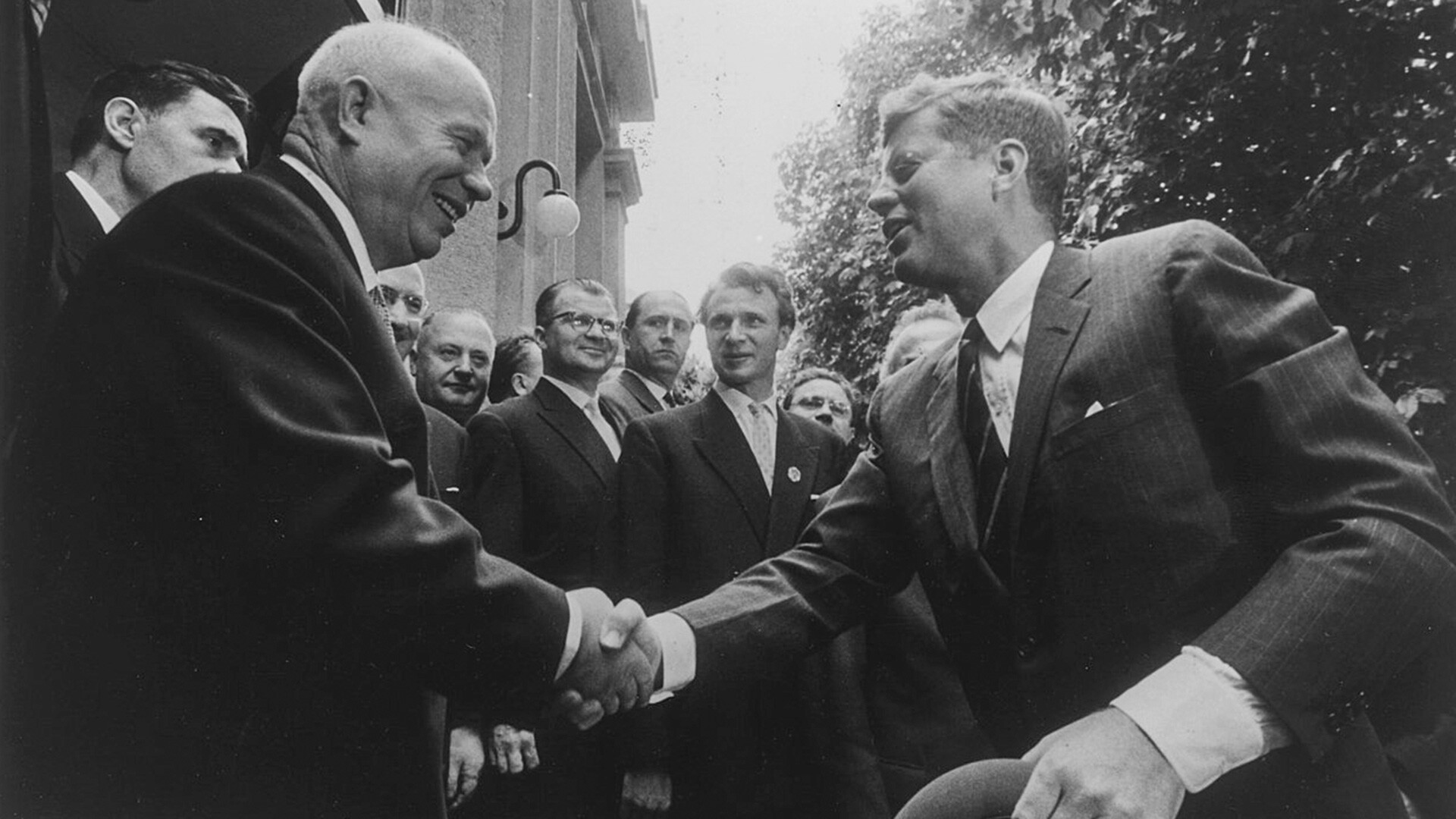
John F. Kennedy shaking hands with Nikita Khrushchev.
Public domainThe personal acquaintance of Nikita Khrushchev and John F. Kennedy began at the ‘Vienna summit’ – one of the most disastrous meetings in the history of Soviet-American relations, which took place on June 4, 1961. Before the summit, Khrushchev’s advisors characterized the Kennedy brothers to him as weak-willed “boys in short trousers”, an easy target for verbal attacks. Kennedy’s seconds, in turn, also couldn’t offer their president a positive tactic for the talks, since all of them were ardent opponents of the communists.
The leaders of the two rival blocs abstractly argued at length and quite aggressively about ideologies and the fate of the world, in the end, not dipping into any specifics. As a result of the ‘Vienna summit’, not a single official paper was signed. The meeting that was supposed to bring the end of the Cold War closer, only exacerbated relations between the USSR and the U.S. and resulted in the Berlin Crisis of 1961.
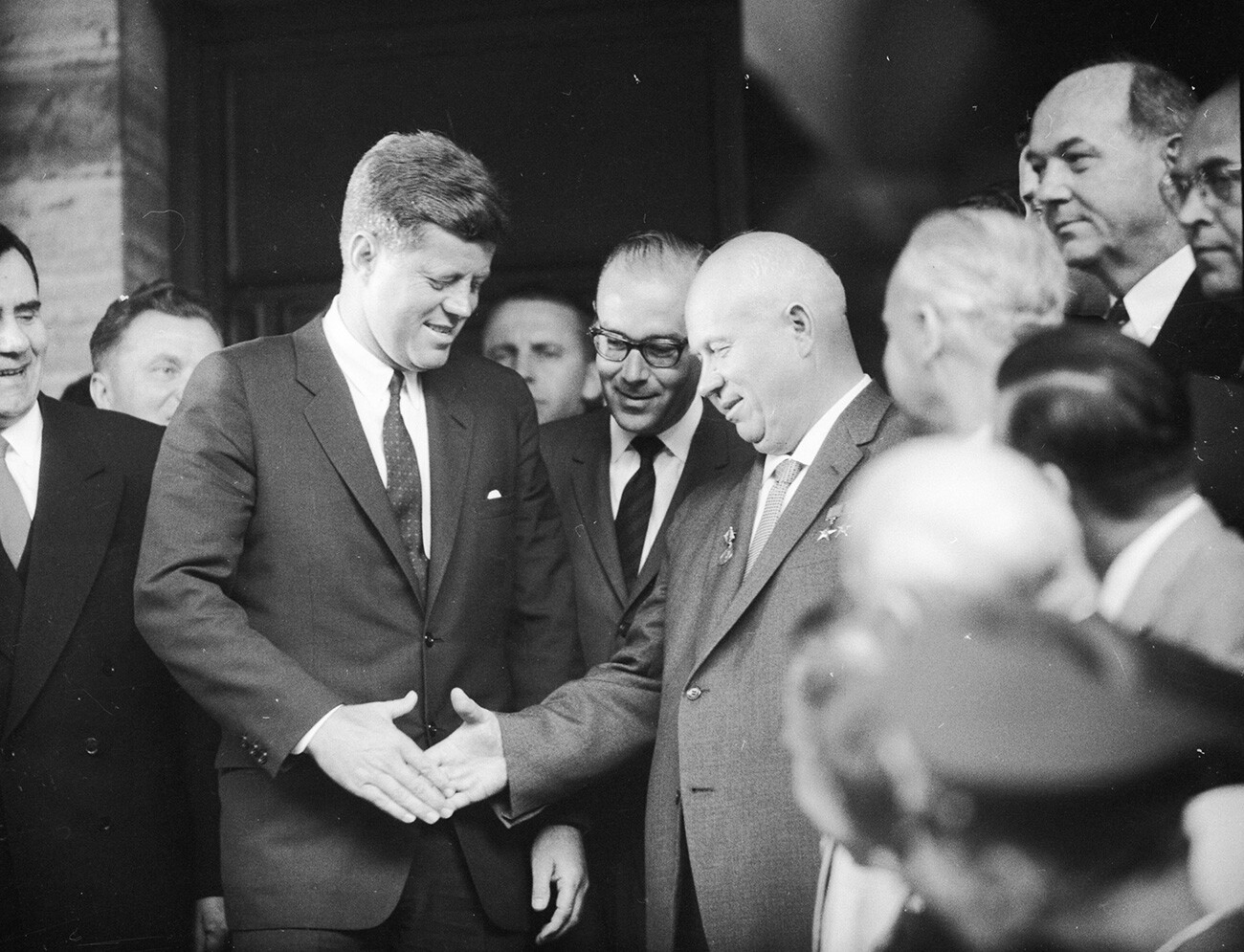
Soviet statesman Nikita Khrushchev, first secretary of the Soviet Communist Party and U.S. statesman John F Kennedy, 35th president of the U.S., shake hands at the U.S. Embassy in Vienna on meeting for talks.
Ron Case/Getty ImagesDespite the failure of the ‘Vienna summit’, neither of the sides wished for a new large war. Already in September 1961, Khrushchev sent Kennedy a 26-page-long letter, in which he tried to reanimate their relations.
“My thoughts have more than once returned to our meetings in Vienna. I remember you emphasized that you did not want to proceed towards war and favored living in peace with our country, while competing in the peaceful domain. And though subsequent events did not proceed in the way that could be desired, I thought it might be useful in a purely informal and personal way to approach you and share some of my ideas. If you do not agree with me, you can consider that this letter did not exist, while naturally I, for my part, will not use this correspondence in my public statements. After all, only in confidential correspondence can you say what you think without a backward glance at the press, at the journalists.”
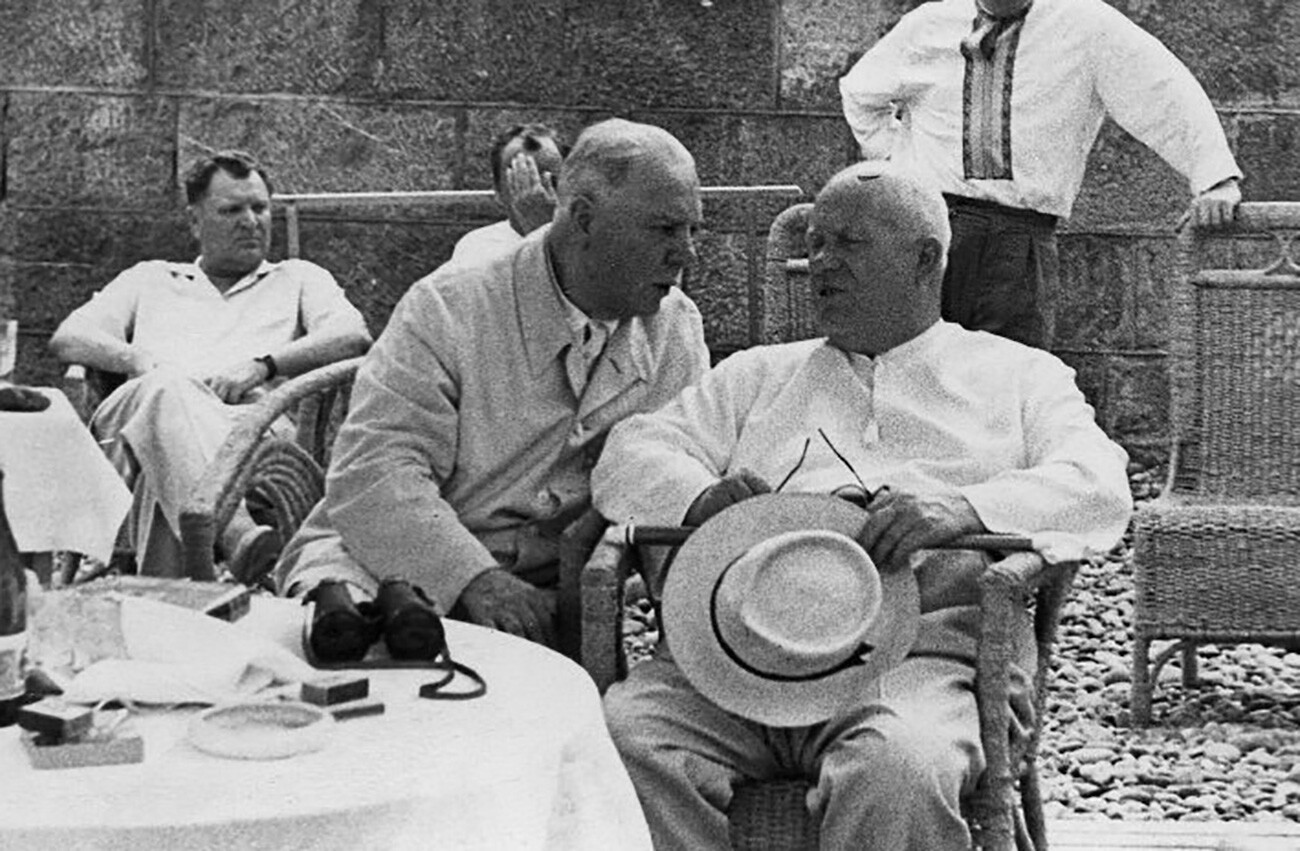
Khrushchev wrote his first letter to Kennedy at his dacha near the Black Sea.
MAMM/MDF/Russia in photoIn his letter, communist Khrushchev unexpectedly drew a comparison between the planet and Noah’s Ark, where both “clean” and “unclean” animals had found refuge: “Regardless of who lists himself with the ‘clean’ and who is considered to be ‘unclean’, they are all equally interested in one thing and that is that the Ark should successfully continue its voyage. And we have no other alternative: either we should live in peace and cooperation, so that the Ark maintains its buoyancy, or else it sinks.”
Khrushchev’s idea to hold informal correspondence was to John Kennedy’s liking. He agreed to keep it secret.
“I like very much your analogy of Noah’s Ark, with both the ‘clean’ and the ‘unclean’ determined that it stays afloat. Whatever our differences, our collaboration to keep the peace is as urgent – if not more urgent – than our collaboration to win the last world war,” Kennedy wrote in his reply.
Khrushev and Kennedy preferred to talk to each other, circumventing the official communication channels, so as few people as possible in the Kremlin and the White House would know about their correspondence. The First Secretary of the Soviet Union had his man in Washington, who could become the liaison between the two leaders.
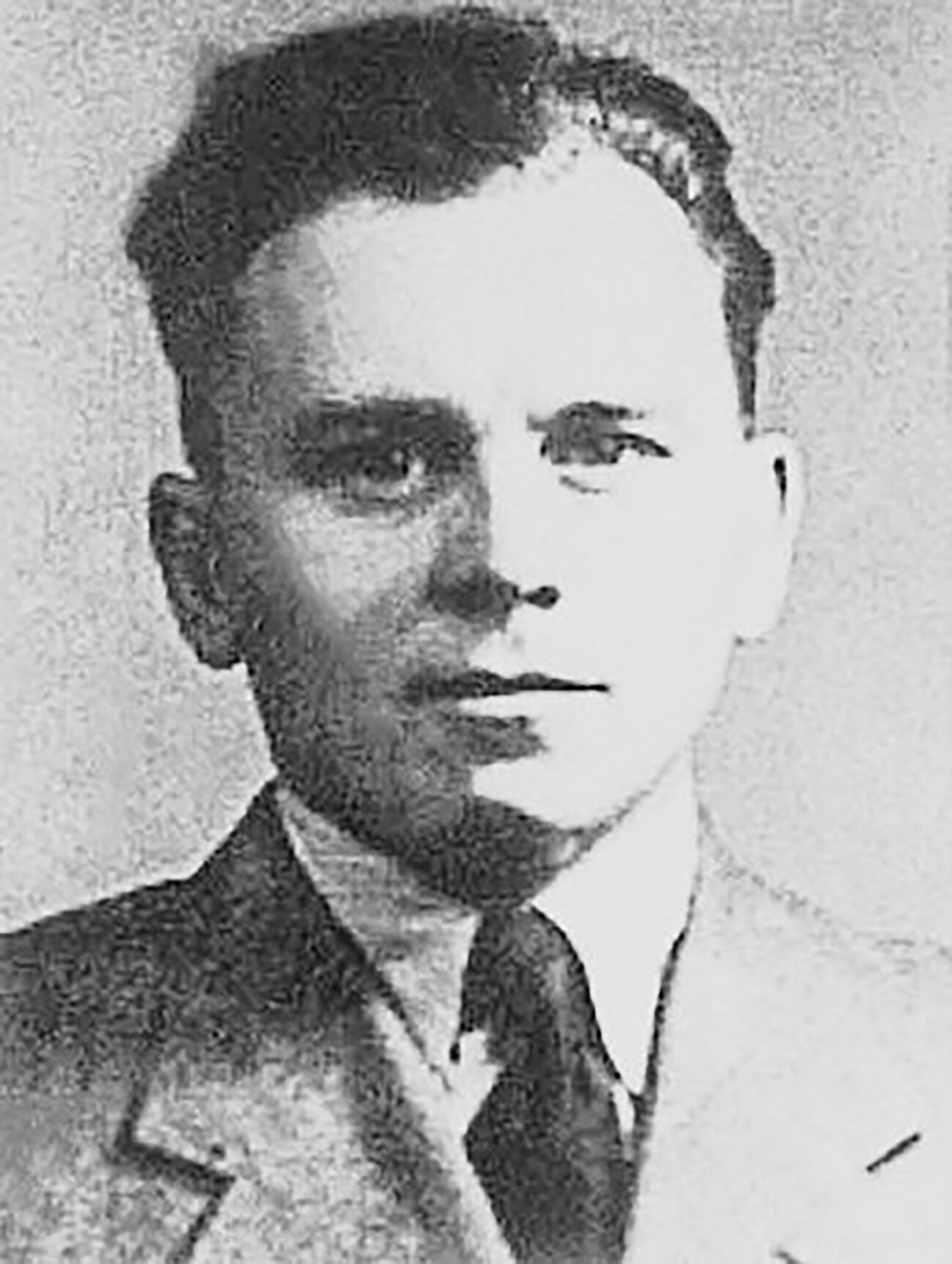
Georgy Bolshakov was the deputy editor-in-chief of the Soviet Union magazine in Washington. The perfect cover for a GRU colonel.
Archive photo“So then we had a spy that used to come to our house all the time, a guy called Georgi Bolshakov, and he was this Russian spy my parents had met at the embassy. They had gone to a party or a reception at the Russian Embassy. And he had approached them and they knew he was a GRU agent and KGB. He was both, oh, he used to come to our house. They really liked him, he was very attractive. He was always laughing and joking. He would do rope climbing contests with my father. He would do push-up contests with my father. He could do the Russian dancing, the Cossacks dancing. And he would do that for us and teach us that. And we knew he was a spy, too. And this was at the time of, you know, the James Bond films were first coming out. So, it was really exciting for us, to have an actual Russian spy in our house. The State Department was horrified by it… Khrushchev… sent this long letter to my uncle and he didn’t wanna go through his state department or his embassy. He was friends with Bolshakov, so he gave Georgi the letter and Georgi brought it and handed it to Pierre Salinger, folded in the New York Times. And he gave it to my uncle,” - from the memoirs of Robert F. Kennedy, Jr.
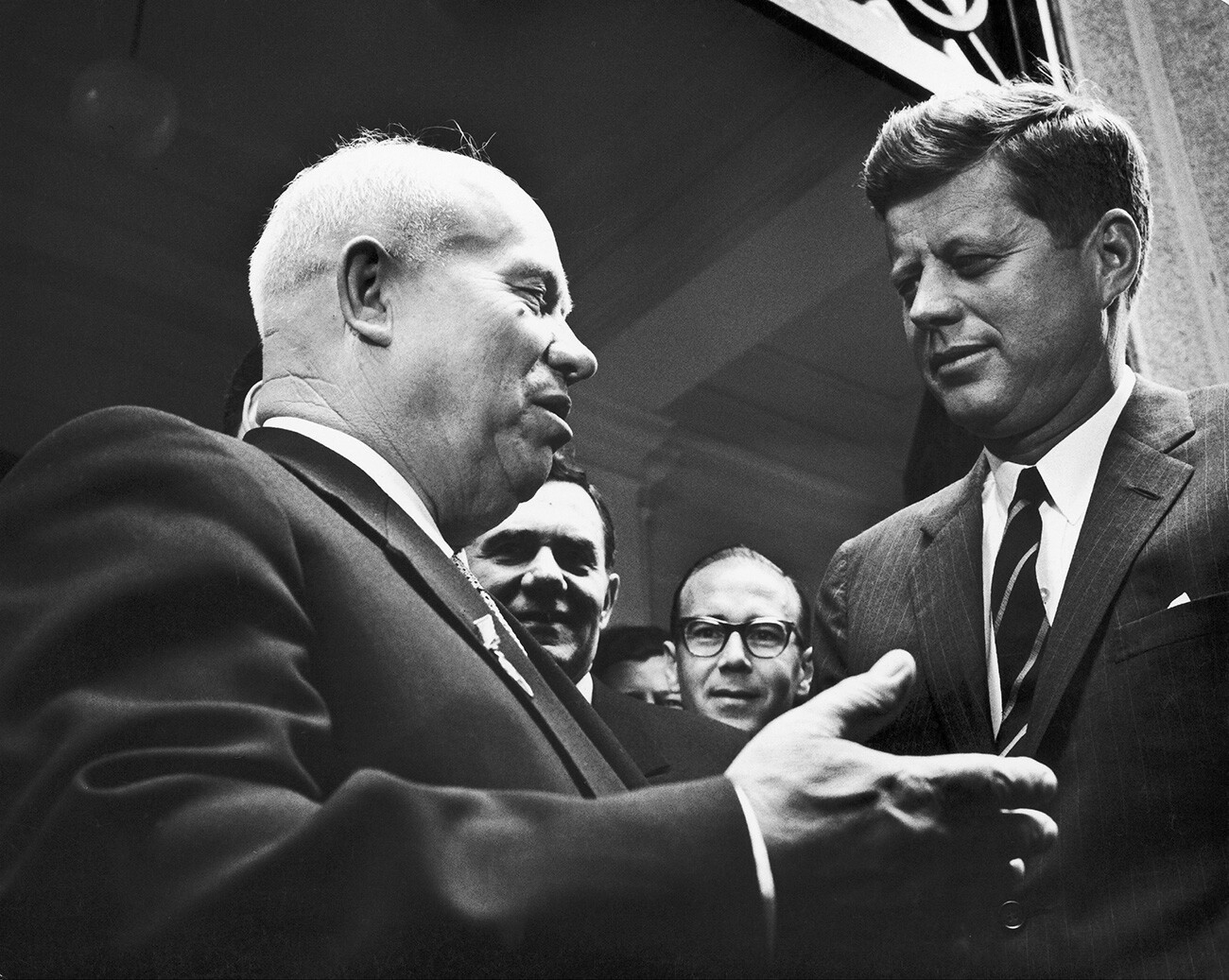
In Vienna, June 04, 1961.
Don Carl STEFFEN/Gamma-Rapho/Getty ImagesLater, Bolshakov met Robert Kennedy and Salinger several more times to pass them oral and written messages from Khrushchev. Aside from that, the leaders of the two superpowers agreed to establish a hotline. A red telephone appeared in the house of the U.S. president, by which he could directly contact the First Secretary of the Soviet Union.
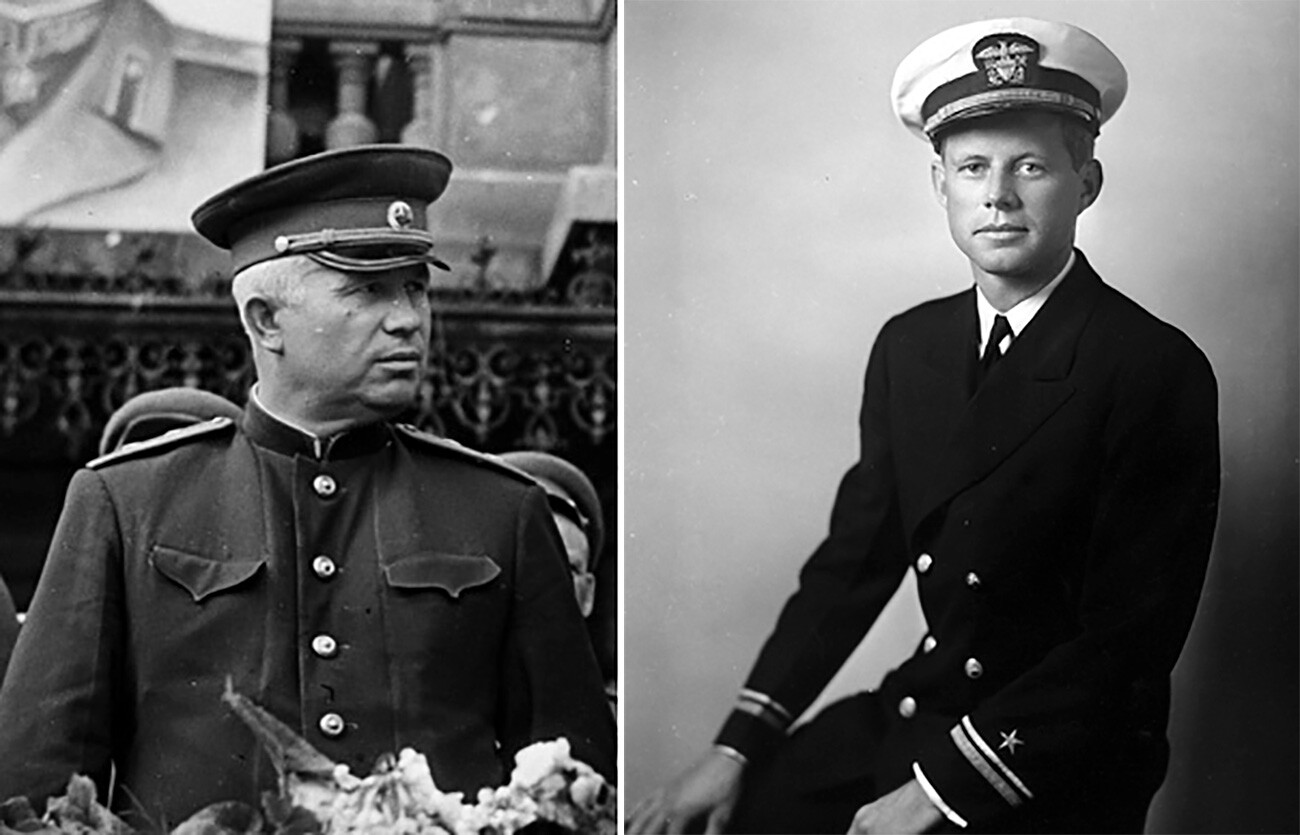
Left: First Secretary of the Central Committee of the Communist Party of Ukraine Nikita Khrushchev on the tribune, 1944. Right: Lt. John F. Kennedy in ceremonial dress, 1942.
Public domainBut, the mutual respect of Kennedy and Khrushchev was not enough to prevent the Cuban Missile Crisis. In 1961, American PGM-19 ‘Jupiter’ nuclear warheads were placed in Turkey. With them, in just 15 minutes, the main industry centers in the European part of the USSR could be destroyed. Soviet leadership and Khrushchev personally took this move as an insult.
The USSR’s response came shortly after. In August 1962, the first Soviet ships with ballistic missiles arrived to communist Cuba. By the middle of October, the ‘island of freedom’ already had 40 nuclear warheads and 40,000 Soviet Army soldiers and officers. Kennedy was furious because of Khrushchev’s venture, while Khrushchev himself couldn’t forgive Kennedy for the missiles in Turkey and plans for a second invasion of Cuba. The situation was heated to the limit; the world had never been closer to a nuclear catastrophe.
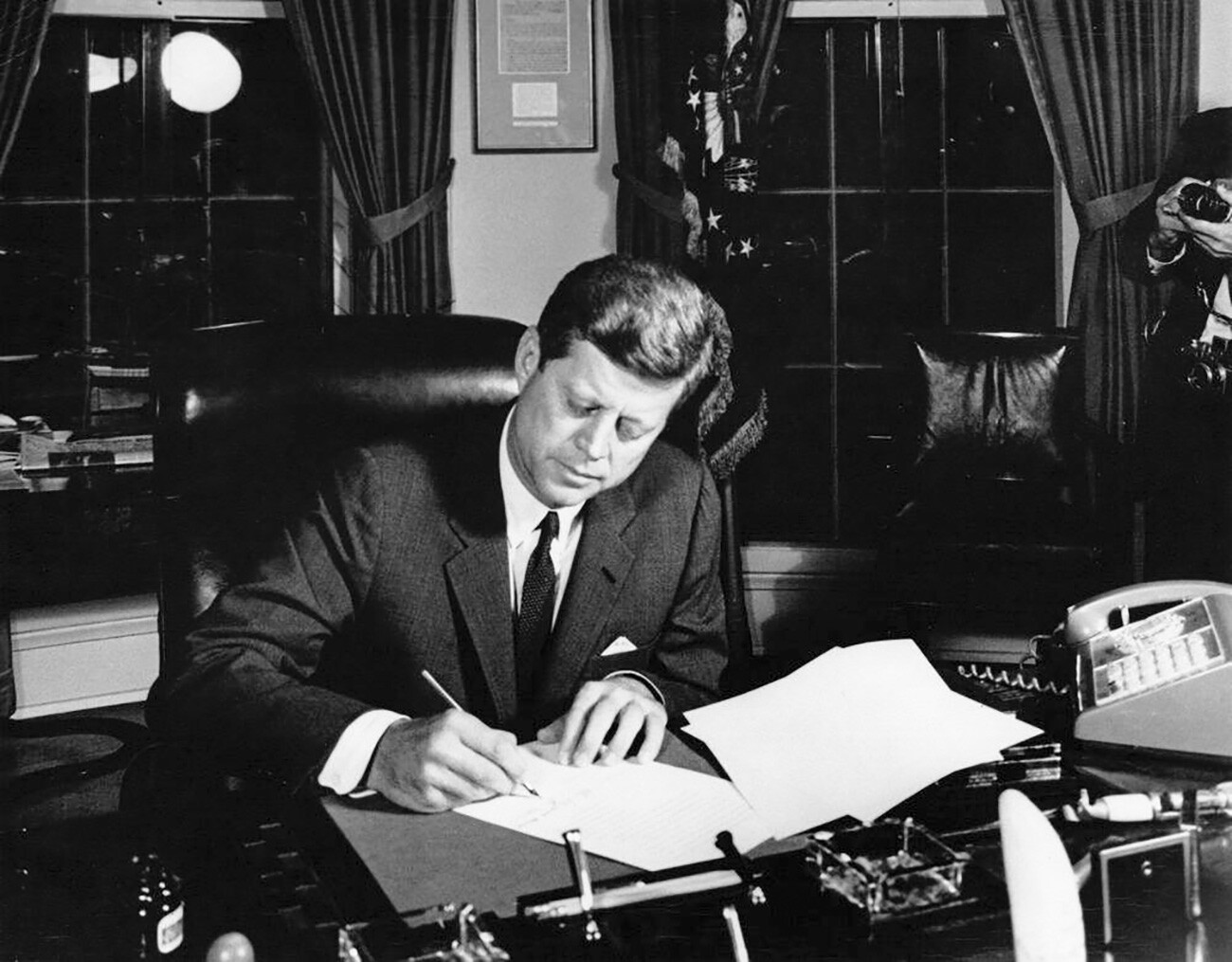
John F. Kennedy signs the interdiction of the delivery of offensive weapons to Cuba. White House, Washington, D.C.
Legion Media“I think you will recognize that the steps which started the current chain of events was the action of your Government in secretly furnishing offensive weapons to Cuba,” was Kennedy’s message to Khrushchev on October 23, 1962.
“You are disturbed over Cuba. You say that this disturbs you, because it is 90 miles by sea from the coast of the United States of America. But, Turkey adjoins us; our sentries patrol back and forth and see each other. Do you consider, then, that you have the right to demand security for your own country and the removal of the weapons you call offensive, but do not accord the same right to us?”
Khrushchev and Kennedy tried as much as they could to prevent the catastrophe, since they knew from experience how horrifying a world war might be. Kennedy is the only U.S. president who received the Purple Heart medal. He personally fought in the war against Hitler’s coalition in the Pacific. Kennedy’s boat was rammed by a Japanese destroyer; three of his comrades died, while John had to carry one of the heavily wounded more than nine kilometers on water to the closest shore. Khrushchev, meanwhile, participated in the Battle of Stalingrad – perhaps the most terrifying battle of the 20th century, which took the lives of more than 2.6 million people. And, although Washington and Moscow generals were itching to test their armies in a battle against each other, the heads of the countries stood their ground – a peaceful solution was required.
“We value peace perhaps even more than other peoples, because we went through a terrible war with Hitler. But, our people will not falter in the face of any test. Our people trust their Government and we assure our people and world public opinion that the Soviet Government will not allow itself to be provoked. But, if the provocateurs unleash a war, they will not evade responsibility and the grave consequences a war would bring upon them. But, we are confident that reason will triumph, that war will not be unleashed and peace and the security of the peoples will be ensured,” was Khrushchev’s message on October 28, 1962.
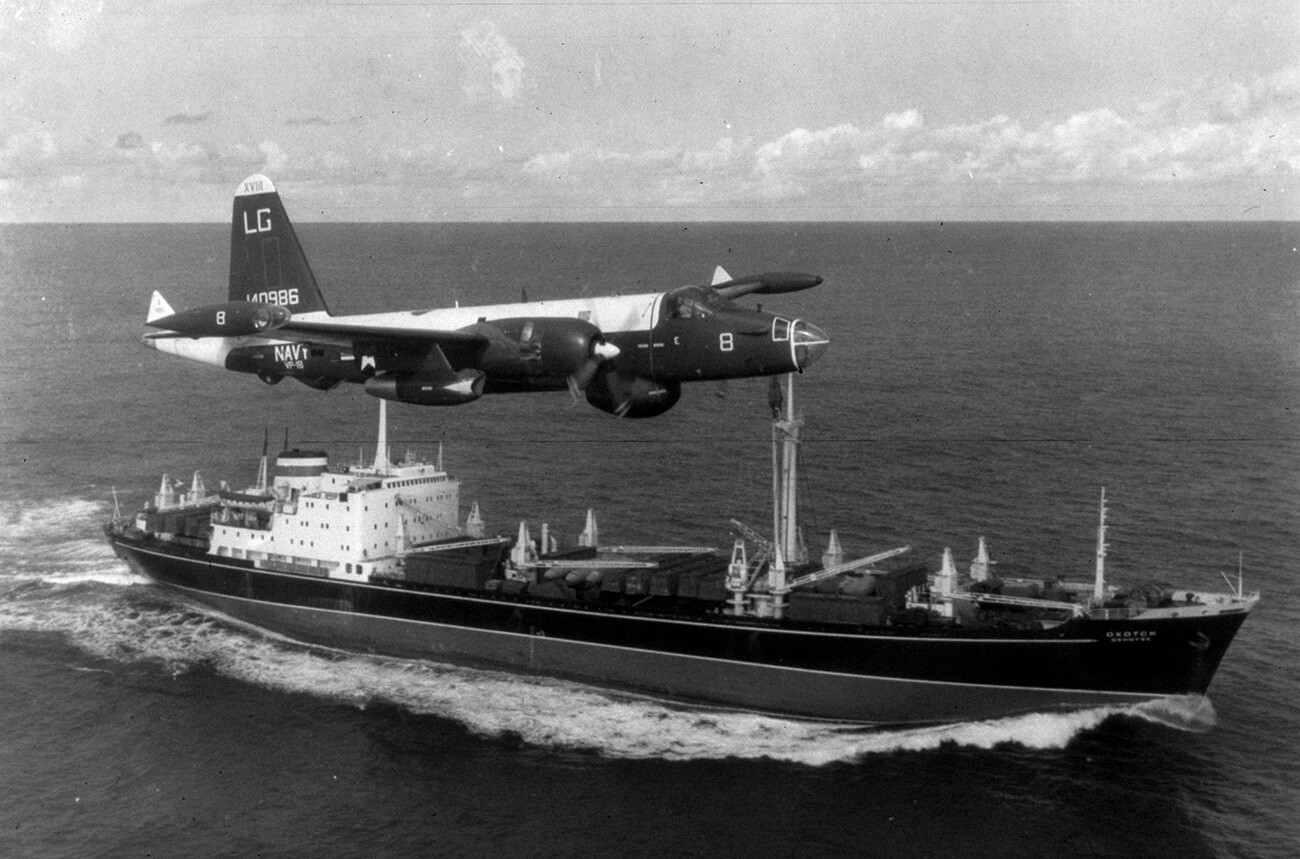
A U.S. Navy Lockheed SP-2H Neptune (BuNo 140986) of patrol squadron VP-18 Flying Phantoms flying over a Soviet freighter. The freighter is most probably the Okhotsk, which left the port at Nuevita carrying 12 IL-28 airplanes, December 5, 1962.
Public domainOn that very same night, Attorney General of the U.S. Robert Kennedy secretly met the USSR’s ambassador Anatoly Dobrynin to offer a peace deal with the following conditions: Khrushchev orders to remove nuclear weapons from Cuba, while President Kennedy promises to lift the blockade from Cuba and dismantle the missiles in Turkey over a period of six months.
That was an oral agreement, without any signatures or guarantees. However, both sides followed through. By November 20, Cuba already didn’t have a single Soviet nuclear warhead, while Kennedy had ordered to lift the blockade from the island. And, in several subsequent months, the American ‘Jupiter’ missiles were removed from Turkey.
Khrushchev and Kennedy realized that they needed to maintain their communication. Only this way they could avoid mutual hatred and reckless decisions that could bring about an irreparable catastrophe. It was important to see a human being, even in one’s enemy; it was the humaneness of the two superpower leaders that saved the world in October 1962.
Dear readers,
Our website and social media accounts are under threat of being restricted or banned, due to the current circumstances. So, to keep up with our latest content, simply do the following:
If using any of Russia Beyond's content, partly or in full, always provide an active hyperlink to the original material.
Subscribe
to our newsletter!
Get the week's best stories straight to your inbox